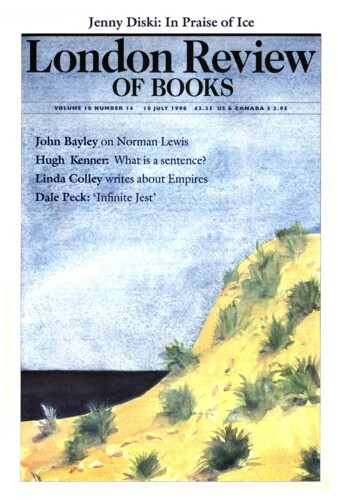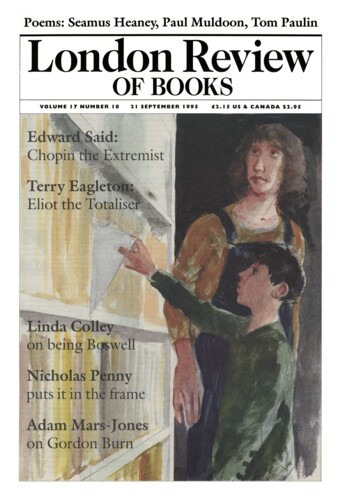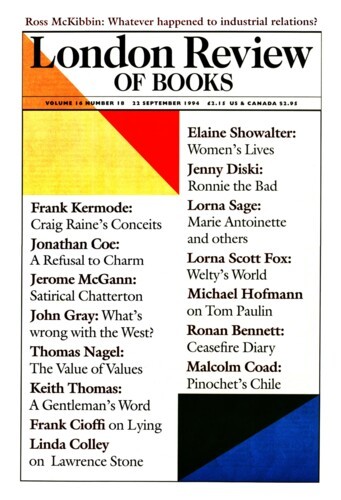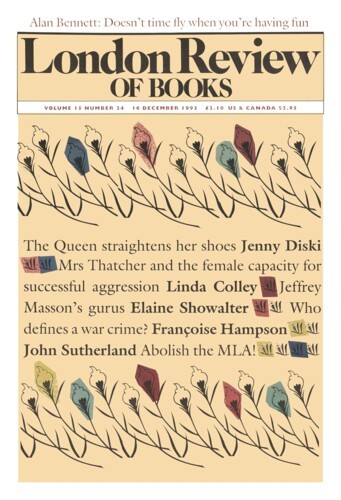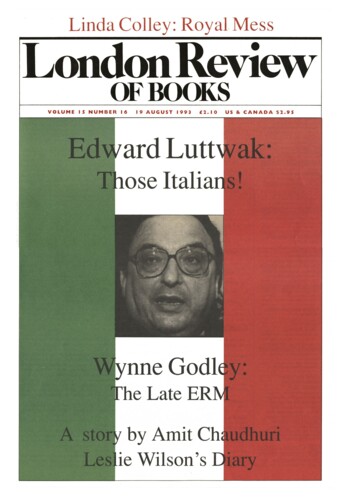Clashes and Collaborations
Linda Colley, 18 July 1996
How should historians write about empire? Or, if you prefer, the imperial enterprise? The task is made difficult in part because many people still find it easy to confuse academic concentration on this phenomenon with approval of it. To some on the Left for instance – especially in the United States – imaginatively reconstructing the ideas and actions of the imperial powers in the past can seem dangerously close to condoning racism, brutality and Eurocentricity in the present. The only valid questions about empire, in this view, are why so many Europeans were so complicit in such an obvious evil for so long, and how non-Europeans came successfully to resist it. By contrast, sections of the Right in this country insist on a version of history that will trumpet Empire’s positive achievements, not least out of a present-minded concern to stress that Britain’s role is global not European. The forthcoming Oxford History of the British Empire, a massive and important work, has already been attacked by sections of the Tory press on the grounds that its American editor, international contributors of both sexes and striving for balance are bound to make it a subversive piece of multiculturalism. Yet rumour has it that this same project was initially denied American funding, because Foundations there assumed that its subject-matter made it ipso facto reactionary.’
